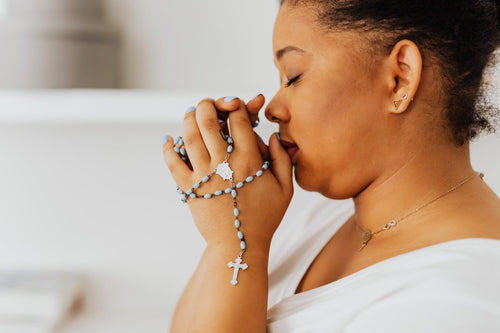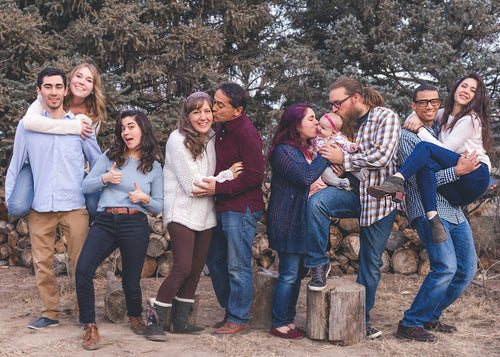
Can the Bible Help With Anxiety? A Faith-Based Guide to Peace
Matthew BellShare
Anxiety is something nearly everyone faces at some point in life. Whether it’s stress over finances, fear of the unknown, relationship struggles, or health concerns, anxiety can creep in and feel overwhelming. But the good news is this: the Bible does not ignore our anxiety—it speaks directly to it. In both the Old and New Testaments, God offers comfort, wisdom, and a path to peace for those burdened by fear and worry.
If you’ve been searching for answers, hope, or just a way to calm the storms within, this article will walk you through what God’s Word says about anxiety and how you can find true peace that lasts—even in the middle of chaos.
Understanding Anxiety from a Biblical Perspective
Anxiety is not new to the human experience. Even heroes of the faith—like David, Elijah, and Paul—faced seasons of fear, stress, and emotional turmoil. What sets the biblical view of anxiety apart is that it doesn’t just tell us to ignore our worries; it invites us to bring them to God.
In Psalm 94:19 (KJV), David writes, “In the multitude of my thoughts within me thy comforts delight my soul.” Even in the midst of overwhelming thoughts, God’s comfort was real to David. Scripture acknowledges that anxiety is real but teaches us that peace is possible—not by our strength, but through trust in God.
What Jesus Says About Anxiety
Jesus spoke clearly and compassionately about anxiety. In Matthew 6:25-27 (KJV), He says:
“Therefore I say unto you, Take no thought for your life, what ye shall eat, or what ye shall drink; nor yet for your body, what ye shall put on. Is not the life more than meat, and the body than raiment? Behold the fowls of the air: for they sow not, neither do they reap... yet your heavenly Father feedeth them. Are ye not much better than they?”
Jesus is not minimizing our concerns—He’s redirecting our focus. He wants us to look at the faithfulness of God in creation and remember that if God cares for birds and flowers, He certainly cares for us. The root of anxiety often comes from trying to control what only God can handle. When we shift our gaze from the problem to the Provider, we open the door for peace.
Later in the same chapter, Jesus says in Matthew 6:34 (KJV), “Take therefore no thought for the morrow: for the morrow shall take thought for the things of itself.” This doesn’t mean we should live irresponsibly—it means we are called to live trustingly. One day at a time, leaning into God's care.
How to Cast Your Cares on God
One of the most comforting verses in Scripture comes from 1 Peter 5:7 (KJV):
“Casting all your care upon him; for he careth for you.”
This is more than a suggestion—it’s an invitation. God wants us to release our burdens and lay them at His feet. The original Greek word for "cast" here means to throw upon—not gently place, but to hurl it onto Him, trusting He is strong enough to carry it.
God does not grow weary, and His shoulders are big enough to handle whatever weighs you down. But peace begins when you let go of what you were never meant to carry alone.
The Peace of God Is a Promise
Philippians 4:6-7 (KJV) is one of the most well-known and powerful passages on anxiety:
“Be careful for nothing; but in every thing by prayer and supplication with thanksgiving let your requests be made known unto God.
And the peace of God, which passeth all understanding, shall keep your hearts and minds through Christ Jesus.”
“Be careful for nothing” means don’t be anxious about anything. Instead of allowing worry to rule your heart, we are instructed to pray—honestly, continually, and with thanksgiving. And in return, God gives us peace that goes beyond human understanding. It's not a peace that comes from circumstances working out, but a peace that guards our hearts even if they don’t.
This kind of peace isn’t something we manufacture. It’s a divine gift that “keeps” us—meaning it protects and preserves us, mind and soul.
Finding Peace in God’s Presence
In the Old Testament, we see God's peace offered in powerful ways. Isaiah 26:3 (KJV) promises:
“Thou wilt keep him in perfect peace, whose mind is stayed on thee: because he trusteth in thee.”
When our minds are focused on God—His promises, His power, His character—He keeps us in perfect peace. The word “peace” here in Hebrew is shalom, which means completeness, wholeness, and harmony. It doesn’t mean there’s no trouble around you, but that there’s peace within you, rooted in trust.
Peace is not found in a life without problems—it’s found in God’s presence, even when problems surround us.
Scriptural Steps Toward Peace
While God’s peace is a gift, there are some practical steps Scripture gives us to invite that peace into our lives:
Pray honestly and often – Talk to God about what’s bothering you.
Meditate on His Word – Reading Scripture daily renews your mind.
Fix your thoughts on truth – Philippians 4:8 (KJV) says, “Whatsoever things are true... think on these things.”
Practice thankfulness – Gratitude shifts your focus from fear to faith.
Lean into community – Ecclesiastes 4:9-10 reminds us that we are stronger together. Don’t walk through anxiety alone.
Jesus Is Our Peace
Ultimately, peace is not a feeling—it’s a Person. Ephesians 2:14 (KJV) tells us plainly, “For he is our peace...” Jesus doesn’t just give peace—He is peace. When you invite Him into your life and surrender your worries, He brings calm to the storm. The more time you spend with Him, the more His peace becomes your reality.
Final Encouragement
Anxiety may knock on your door, but you don’t have to let it in. God has given us everything we need—His Word, His presence, His promises, and His people—to walk in peace. Don’t try to fight it alone. Turn to the One who says in John 14:27 (KJV), “Peace I leave with you, my peace I give unto you... Let not your heart be troubled, neither let it be afraid.”
Today, choose to lay your burdens at the feet of Jesus. You are not alone, and you are deeply loved by the One who calms every storm.
Did This Encourage You?
If this blog helped you better understand how to find peace in God’s Word, please share it with a friend who might be struggling with anxiety too. Sometimes a shared truth can be the first step toward healing and hope.


















































